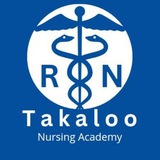Tangential speech or tangentiality is a communication disorder in which the train of thought of the speaker wanders and shows a lack of focus, never returning to the initial topic of the conversation.[1] It tends to occur in situations where a person is experiencing high anxiety, as a manifestation of the psychosis known as schizophrenia, in dementia or in states of delirium.[2] It is less severe than logorrhea and may be associated with the middle stage in dementia.[1] It is, however, more severe than circumstantial speech, in which the speaker wanders but eventually returns to the topic.[3
Takaloo Nursing Academy
Tangential speech or tangentiality is a communication disorder in which the train of thought of the speaker wanders and shows a lack of focus, never returning to the initial topic of the conversation.[1] It tends to occur in situations where a person is experiencing…
گفتار مماسی یا مماس اختلال ارتباطی است که در آن رشته فکری گوینده سرگردان است و عدم تمرکز را نشان می دهد و هرگز به موضوع اولیه گفتگو باز نمی گردد.[1] این معمولاً در موقعیتهایی رخ میدهد که در آن فرد اضطراب بالایی را تجربه میکند، به عنوان تظاهرات روان پریشی معروف به اسکیزوفرنی، در زوال عقل یا در حالتهای هذیان.[2] شدت آن کمتر از لوگوره است و ممکن است با مرحله میانی زوال عقل همراه باشد.[1] با این حال، شدیدتر از گفتار غیرمستقیم است، که در آن گوینده سرگردان است اما در نهایت به موضوع باز می گردد.[3]
✅ What Makes a Meal Kosher?
A kosher meal must:
Contain only kosher ingredients (e.g., permitted animals slaughtered and prepared according to Jewish law).
Keep meat and dairy separate — including during cooking, serving, and even dishwashing.
Avoid forbidden foods, such as:
Pork
Shellfish
Mixing meat and fish in the same dish
Be prepared using kosher utensils in a kosher kitchen, especially for observant individuals.
🧑⚕️ In Nursing Practice:
When caring for Jewish clients:
Always check religious or dietary preferences on admission.
Communicate with dietary services clearly — many hospitals have kosher meal options.
Don’t assume — always verify with the client or family if unsure.
A kosher meal must:
Contain only kosher ingredients (e.g., permitted animals slaughtered and prepared according to Jewish law).
Keep meat and dairy separate — including during cooking, serving, and even dishwashing.
Avoid forbidden foods, such as:
Pork
Shellfish
Mixing meat and fish in the same dish
Be prepared using kosher utensils in a kosher kitchen, especially for observant individuals.
🧑⚕️ In Nursing Practice:
When caring for Jewish clients:
Always check religious or dietary preferences on admission.
Communicate with dietary services clearly — many hospitals have kosher meal options.
Don’t assume — always verify with the client or family if unsure.
Patient Group Directions (PGDs) are written instructions that allow certain registered healthcare professionals to supply and administer specified medicines to groups of patients without individual prescriptions. They are designed to ensure timely access to medicines while maintaining patient safety and adherence to legal and clinical governance standards.
دستورالعملهای گروه بیماران (PGDs) دستورالعملهای مکتوبی هستند که به برخی از متخصصان مراقبتهای بهداشتی ثبتشده اجازه میدهند تا داروهای مشخصی را برای گروههایی از بیماران بدون نسخه انفرادی تهیه و تجویز کنند. آنها برای اطمینان از دسترسی به موقع به داروها و در عین حال حفظ ایمنی بیمار و رعایت استانداردهای قانونی و بالینی طراحی شده اند.
دستورالعملهای گروه بیماران (PGDs) دستورالعملهای مکتوبی هستند که به برخی از متخصصان مراقبتهای بهداشتی ثبتشده اجازه میدهند تا داروهای مشخصی را برای گروههایی از بیماران بدون نسخه انفرادی تهیه و تجویز کنند. آنها برای اطمینان از دسترسی به موقع به داروها و در عین حال حفظ ایمنی بیمار و رعایت استانداردهای قانونی و بالینی طراحی شده اند.
Common Symptoms of Chronic Kidney Disease
#CKD
Fatigue and Weakness: A general feeling of tiredness due to the accumulation of waste products in the body.
Swelling (Edema): Swollen ankles, feet, or hands resulting from fluid retention.
Shortness of Breath: Difficulty breathing, which can be caused by fluid buildup in the lungs.
Changes in Urination:
Increased need to urinate, especially at night (nocturia).
Blood in the urine (hematuria).
Sleep Disturbances: Difficulty sleeping or insomnia.
Itchy Skin: Persistent itching due to waste accumulation in the bloodstream.
Muscle Cramps: Cramping, particularly in the legs, due to electrolyte imbalances.
Nausea and Vomiting: Feeling sick, which may be accompanied by vomiting.
Headaches: Frequent headaches that may be related to high blood pressure or toxin buildup.
Erectile Dysfunction: In men, difficulty achieving or maintaining an erection.
#CKD
Fatigue and Weakness: A general feeling of tiredness due to the accumulation of waste products in the body.
Swelling (Edema): Swollen ankles, feet, or hands resulting from fluid retention.
Shortness of Breath: Difficulty breathing, which can be caused by fluid buildup in the lungs.
Changes in Urination:
Increased need to urinate, especially at night (nocturia).
Blood in the urine (hematuria).
Sleep Disturbances: Difficulty sleeping or insomnia.
Itchy Skin: Persistent itching due to waste accumulation in the bloodstream.
Muscle Cramps: Cramping, particularly in the legs, due to electrolyte imbalances.
Nausea and Vomiting: Feeling sick, which may be accompanied by vomiting.
Headaches: Frequent headaches that may be related to high blood pressure or toxin buildup.
Erectile Dysfunction: In men, difficulty achieving or maintaining an erection.
